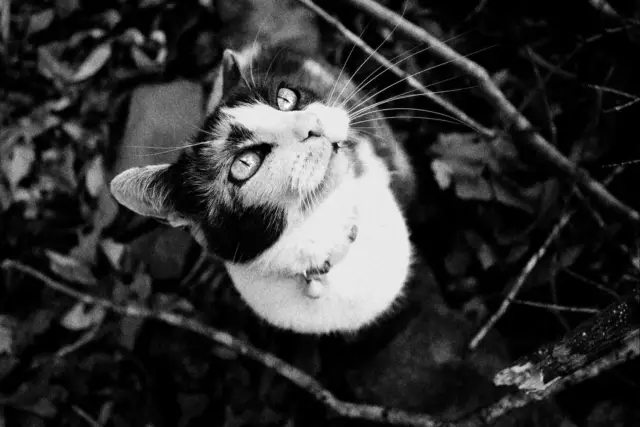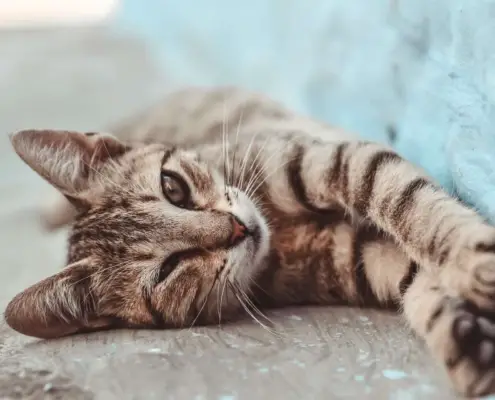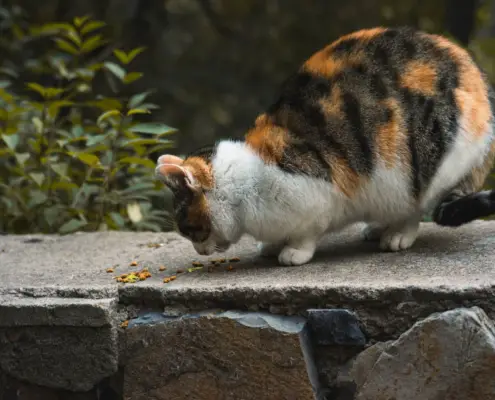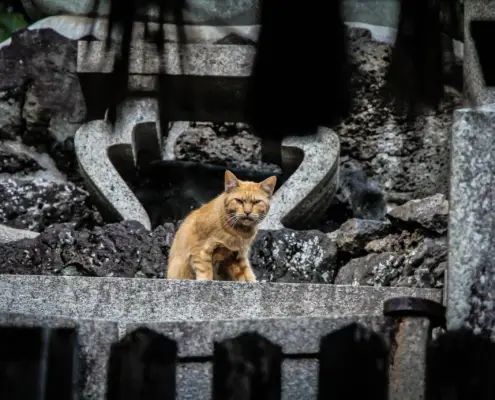
Feline reproduction is a fascinating topic that every cat owner should be familiar with. Understanding the reproductive cycle of cats can help prevent unwanted pregnancies and ensure the overall health and well-being of your furry friend. This article aims to provide a comprehensive guide to feline reproduction, specifically focusing on how early cats can get pregnant.
Understanding the Feline Estrus Cycle
The feline estrus cycle, also known as heat, is the period when a female cat is fertile and ready to mate. This cycle typically lasts around 7 to 10 days, but it can vary from cat to cat. During this time, the cat’s body undergoes hormonal changes, preparing her for potential pregnancy.
When Can Cats Get Pregnant?
Cats can become pregnant as early as 4 months of age. However, it’s important to note that the age at which a cat can get pregnant can vary depending on several factors, such as breed and individual development. Some cats may reach sexual maturity as young as 4 months, while others may not become fertile until they are 6 to 9 months old.
Factors Affecting a Cat’s Ability to Get Pregnant
Several factors can affect a cat’s ability to get pregnant, including age, health, and environmental conditions. Younger cats are generally more fertile than older cats, and certain health conditions may hinder a cat’s reproductive capabilities. Additionally, external factors such as stress or poor nutrition can also impact a cat’s fertility. It’s essential to provide a safe and nurturing environment to ensure optimal reproductive health.
Signs of Pregnancy in Cats
Identifying the signs of pregnancy in cats can be challenging, especially during the early stages. Some common signs include weight gain, changes in appetite, and nipple enlargement. However, these signs can also be indicative of other health issues, so it’s crucial to consult a veterinarian for an accurate diagnosis. A veterinarian can perform a physical examination or conduct imaging tests to confirm pregnancy.
Risks and Complications of Early Pregnancy in Cats
Early pregnancy in cats can pose several risks and complications. Younger cats may not be physically mature enough to handle the demands of pregnancy and childbirth. This can lead to complications during labor, including difficulties giving birth and an increased risk of stillbirth or neonatal mortality. It’s important to closely monitor pregnant cats and seek veterinary care if any concerns arise.
How to Prevent Early Pregnancy in Cats
Preventing early pregnancy in cats is crucial for their well-being and population control. There are several methods to achieve this, including spaying and neutering. Spaying, the surgical removal of a female cat’s reproductive organs, eliminates the risk of pregnancy entirely. Neutering, the surgical removal of a male cat’s testicles, reduces the urge to mate and prevents unwanted pregnancies.
The Importance of Spaying and Neutering
Spaying and neutering cats not only prevent unwanted pregnancies but also offer numerous health benefits. Spaying female cats eliminates the risk of uterine infections and reduces the chances of mammary tumors. Neutering male cats helps prevent testicular cancer and reduces the risk of certain behavioral problems, such as aggression and marking territory. Additionally, spaying and neutering contribute to controlling the cat population, reducing the number of stray and feral cats.
Tips for Responsible Cat Ownership
Responsible cat ownership goes beyond preventing early pregnancies. It involves providing proper nutrition, regular veterinary care, and a safe and stimulating environment for your feline companion. Ensuring your cat’s overall well-being includes vaccinations, parasite prevention, and regular check-ups with a veterinarian. Furthermore, providing mental and physical stimulation through play, exercise, and environmental enrichment is essential for a happy and healthy cat.
Conclusion
Understanding feline reproduction and knowing how early cats can get pregnant is crucial for responsible cat ownership. Cats can become fertile as early as 4 months of age, but individual factors such as breed, health, and environment can influence their reproductive capabilities. Preventing early pregnancies through spaying and neutering is not only beneficial for the cat’s health but also helps control the cat population. By being a responsible cat owner and providing the necessary care and attention, you can ensure the well-being of your feline companion and contribute to a happier and healthier cat community.
If you enjoyed my article, I would appreciate you sharing it with your network.

Sima Ndlebe
Sima writes for CatBuzz. He is interested in Cats, Health and Fitness, and Entrepreneurship.
Published: 30 May 2024
Related Articles
Disclaimer
The content found on CatBuzz.org is presented on an "as is" basis and is intended for general consumer information and education purposes only. Any utilization of this information is voluntary and solely at the user's own risk.
None of the articles or content should be regarded as, or used in place of, veterinary medical advice, diagnosis, or treatment. The information provided on the website is purely for educational and informational intentions and should not be considered a substitute for professional guidance from a veterinarian or other qualified expert. The articles are designed to inform consumers about veterinary healthcare and medical matters that may impact their cat's daily life. It should be noted that this website and its services do not constitute the practice of any form of veterinary medical advice, diagnosis, or treatment. CatBuzz.org explicitly disclaims any liability for any direct or indirect damages or losses that may arise from the use of or reliance on the information contained within the content.
Consumers must consult a veterinarian, veterinary specialist, or another qualified veterinary healthcare provider when seeking advice regarding their cat's health or medical conditions. It is important not to ignore, avoid, or postpone seeking medical advice from a veterinarian or other qualified veterinary healthcare provider solely based on information obtained from this website. If you believe that your cat may be experiencing a medical issue or condition, it is imperative to promptly contact a qualified veterinary healthcare professional.



